There are numerous opportunities for those looking to invest in the Australian Stock Exchange (ASX), whether they are seasoned investors or new to the market. As we move through 2025, it’s important to consider the current market dynamics and identify best stockswith the best potential for long-term growth. These insights and pieces of advice will help you make informed investment decisions.
Why Invest in ASX Shares in 2025?
We consider the Australian stock market to be one of the best investment opportunities in 2025. Many investors are taking a cautious approach due to a stable economy, anticipated interest rate cuts, and varying revenue performance across sectors when assessing ASX stocks for long-term growth. The ASX offers growth stocks, value stocks, and dividend stocks, catering to different investment strategies.
Historically, both small-cap and large-cap ASX stocks have provided great returns over the long term. The Reserve Bank of Australia (RBA) plays a role in determining interest rate cuts, which are influenced by inflation and economic conditions. However, market volatility remains a focal point for 2025.
While commodity prices have fluctuated, volatility still dominates the broader market. The profitability of resource companies depends on sector-specific dynamics. Nevertheless, Australia is a potentially lucrative market for both institutional and retail investors.
Current Market Trends in Australia
The Australian stock market in 2025 has seen a shift in stock investing trends. Here are some important developments:
- Investor-favourite small-cap stocks, particularly in the technology and healthcare sectors, are considered undervalued compared to their larger counterparts on the ASX.
- Demand for dividend stocks is set to rise, as investors seek consistent cash flow and portfolio diversification.
- Commodity prices remain volatile, with companies in gold mining making gains, while others, like those in iron ore, are under pressure from global demand and policies.
- ASX shares operating within the renewable energy and fintech sectors have consistently outperformed the broader market, with these companies expanding their market share.
- The rise of exchange-traded funds (ETFs) and mutual funds has allowed long-term investors to adjust risk effectively while maintaining higher sector exposure.
As a result, many investors are fine-tuning their strategies to adapt to changing market dynamics and identify the best stocks with strong price performance.
Get the Latest Stock Market Insights for Free with
Stocks Down Under & Pitt Street Research
Join our newsletter and receive exclusive insights, market trends, investment tips, and updates delivered directly to your inbox. Don't miss out!
How to Identify the Best ASX Shares to Buy Now
Investors looking for the best stocks to buy now should consider a proven track record of performance and evaluate key financial metrics. To have a solid investment strategy, you need to consider factors like:
Reviewing a company’s income and profit margins to gauge its financial health. Higher revenue growth over consecutive quarters suggests a stock could be a good long-term investment. Looking at the share price over the past year helps identify common stock-holding patterns for the company. While past performance doesn’t guarantee future results, it does offer insights into historical price performance trends.
The potential to dominate an industry and capture market share is crucial. Evaluate whether the company operates in an industry known for expansion, as this can significantly influence stock trading prospects. Reviewing a company’s quarterly earnings and projections of future earnings can also help investors make informed decisions. Strong candidates tend to have a history of profitability.
Attractive stocks should be carefully assessed for value. Even if an investment appears expensive, it may fail to outperform the market without a sound investment strategy. Investors need to assess their risk tolerance and ensure their brokerage account aligns with their financial goals. Some opt for penny stocks as part of a high-risk, high-reward strategy, while others focus on dividend stocks to generate recurring income.
10 Best ASX Shares to Buy Now in 2025
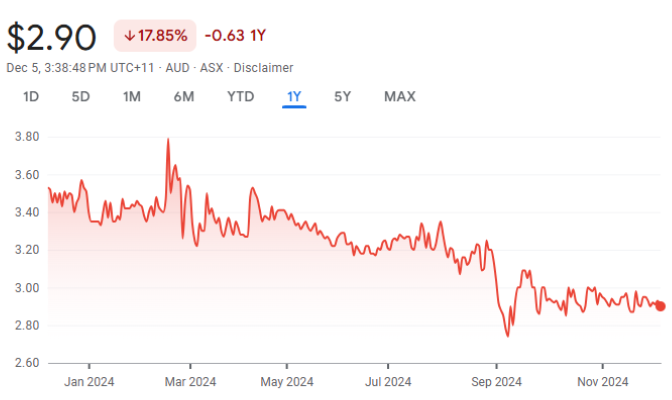
Objective Corporation (ASX:OCL)
Objective Corporation (ASX: OCL) has software products that can handle common problems or manually intensive tasks local governments and businesses in highly regulated sectors undertake on a daily basis. It has an $800bn TAM, is 65%-founder owned and has a >25% profit margin.
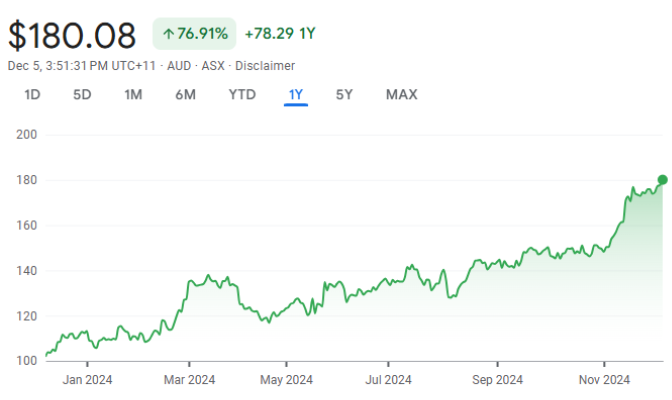
Xero (ASX:XRO)
Xero (ASX:XRO) is one of the ASX’s best-performing tech stocks over the last decade, offering accounting software helping SMEs do business. In its most recent annual results, the company achieved over NZ$1.4bn and made its first profit off the back of over 4m subscribers, but believes it has room for further growth - claiming to have a TAM of NZ$100bn and that it can 'double the size' of its business.
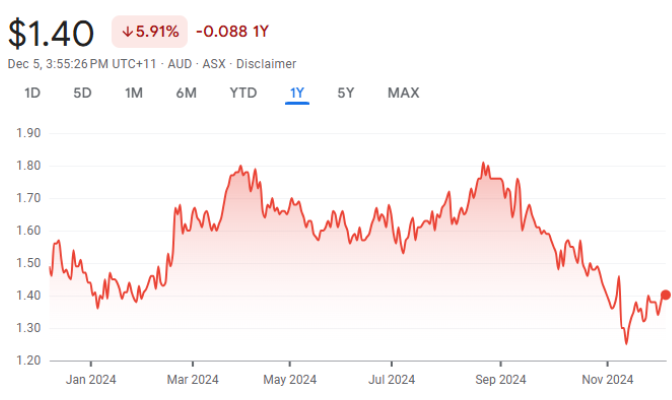
Propel Funeral Partners (ASX:PFP)
They say death is one of life's two certainties and Propel Funeral Partners is the only remaining ASX company with exposure to it. It is an owner of various funeral parlours including White Lady and Simplicity just to name a couple. It delivered $209.2m in revenue and a $23.4m profit in FY24.
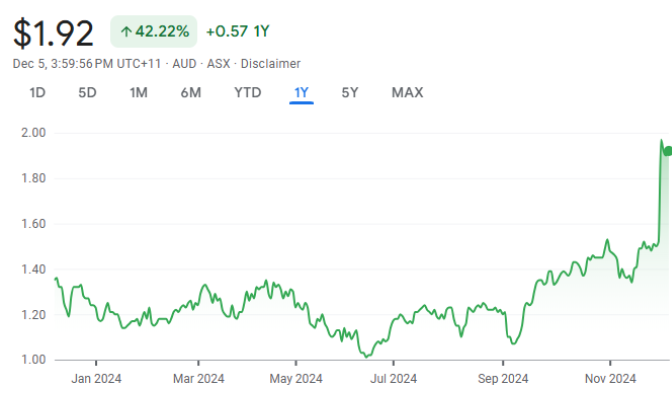
Capricorn Metals (ASX:CMM)
Turning to the mining and resources sector, Capricorn is one of our favourites. It is exposed to gold, the hottest commodity right now, and its flagship Karlawinda Gold Mine is a 120,000/oz per annum gold mine that will last another 10 years. It is hoping to open a second gold mine, at Mt Gibson, that will be a 150koz producing mine and has an NPV of A$828m.
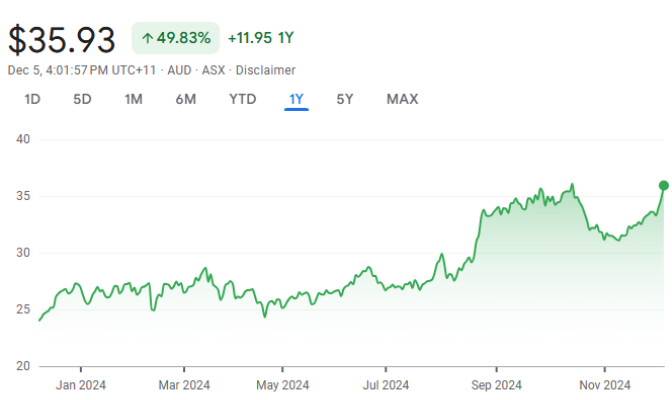
Breville (ASX: BRG)
Breville is a premium kitchen appliances business with a presence in Australia, Europe and the Americas. It was founded in 1932 – founded from capital obtained from a successful 4-to-1 bet at the 1932 Melbourne Cup. Breville sells over $1.5bn in goods each year in over 100 countries globally and caters to middle to higher income earners. It is headquartered in Sydney, has manufacturing facilities in China and regional offices in key markets.
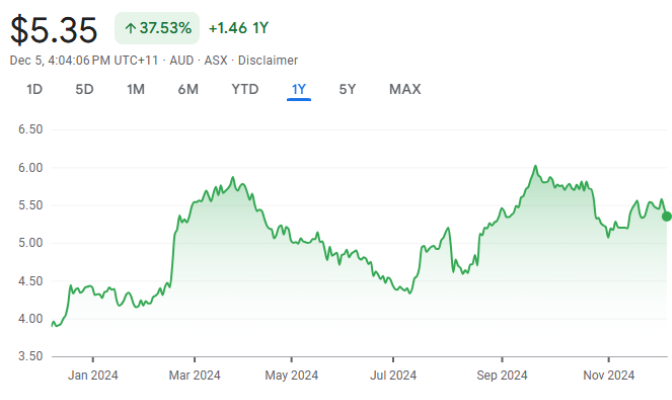
Reliance Worldwide (ASX:RWC)
Reliance is a plumbing supplies company that is the largest manufacturer of PTC (Push to connect) behind the wall plumbing fittings. Reliance Worldwide’s flagship product is the Sharkbite range of brass push-to-connect fittings (as pictured below). These devices avoid the traditional soldering of parts into place, saving plumbers time.
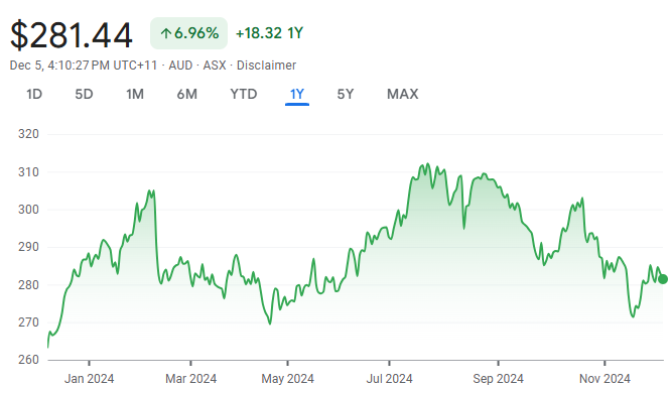
CSL (ASX:CSL)
CSL (ASX:CSL) is the ASX's largest healthcare companies and one of the very few that is capitalised at over $100bn. It is best known for its flu vaccines and blood plasma businesses but has other products too and undertakes major R&D work. CSL has promised investors to expect double digit (percentage) earnings growth for the rest of the 2020s.
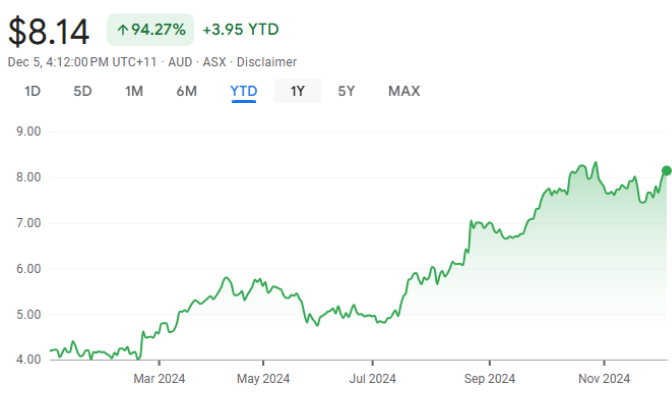
Universal Store (ASX:UNI)
Universal Store is a chain of casual fashion stores aimed at Millennial and Gen Z customers (think 18-35 year olds). Universal Store has 79 stores across Australia, which tend to be in major shopping centres, as well as a further 20 or so stores exclusive for particular brands like Perfect Stranger, and the group makes 14% of its sales online.
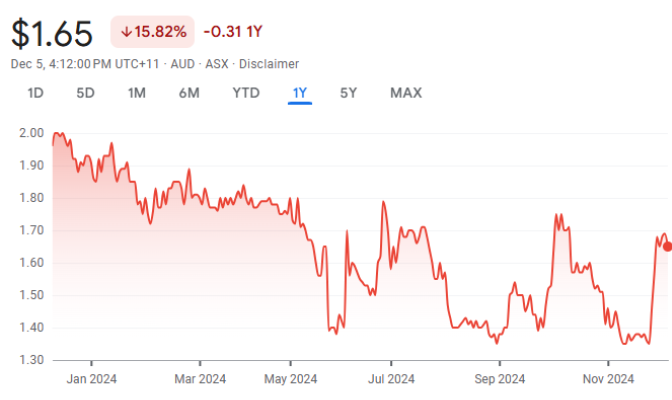
Austal (ASX:ASB)
Austal (ASX:ASB) is a ship builder with facilities in Australia and America. In a market looking for stocks that could benefit from Donald Trump's protectionist policies, this could well be a sure bet. It is building over 50 ships right now and is building up its facilities to cater for further growth.
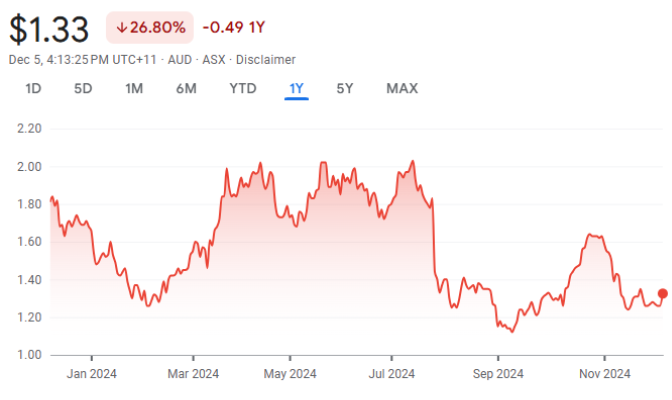
Pexa (ASX:PXA)
Pexa has a monopoly over the Australian conveyancing market and has rode the wave of rising Australian property prices. It has upside left because it has expanded its offerings into further tools for property buyers and it has aspirations to expand into the UK, a market thrice as large as Australia.
10 Best ASX Shares to Buy Now in 2025
The Risks of Investing in ASX Stocks in 2025
While investing in ASX stocks can be profitable, it also involves risks that investors should consider before making any financial decisions. The Australian stock market is highly sensitive to interest rates, inflation, and global economic conditions. Concerns about a recession persist, but interest rate cuts could influence investor sentiment toward growth stocks throughout 2025. When central banks like the Reserve Bank of Australia (RBA) adjust rates, it directly affects company's stock valuations, influencing both long-term investments and short-term trades.
Another major risk for mineral resources companies is the volatility of commodity prices, as these companies rely heavily on global demand and supply dynamics. Price declines can reduce profit margins and slow revenue growth, making ASX shares in this sector more volatile. Market declines can affect nearly every stock, particularly small-cap stocks, which tend to be more vulnerable to downturns. Investors may also be concerned about smaller companies, which may not be as financially strong as larger corporations and may face cash flow issues.
The key risks for small-cap and early-stage stocks include government regulations, competitive pressures, and changes in taxes and corporate governance policies. Companies in sectors like technology and healthcare often face years of financial losses before accumulating enough market share to become viable. Even strong stocks can face challenges when policy changes work against their business model. For instance, Australian banks are directly impacted by regulatory changes, which can affect their ability to pay consistent dividends.
How to Start Investing in ASX Stocks?
For beginner investors, a good starting point is setting up a brokerage account with platforms like CommSec, SelfWealth, or Stake, providing access to Australian shares and investment diversification. Investors can purchase stocks, utilise research resources, and track market trends. Selecting stocks requires thorough research, including a fundamental analysis of a company’s financial health, historical performance, and earnings. Many investors prefer dividend stocks, which pay regular dividends for consistent cash flow.
A well-structured investment strategy should create a diversified portfolio, balancing growth stocks, value stocks, small caps, and dividend stock investments. Investors should consider both short-term opportunities and long-term potential, factoring in valuation, sector trends, and economic conditions when selecting ASX stocks. ETFs and mutual funds are alternative ways to gain broad market exposure without picking individual stocks.
Fractional shares are a great option for those with limited capital, as they allow small investments in expensive stocks. While penny stocks can be tempting due to their low share prices, they also carry higher risks and uncertain returns. Recession-resistant stocks are also a solid option for long-term investors who are willing to hold through economic downturns. By monitoring price performance, market trends, and quarterly earnings reports, investors can navigate the market effectively. Unlike short-term traders, long-term investors often have the peace of mind to plan their strategy for the year ahead, focusing on financial performance, risk appetite, and market research.
FAQs on Investing in Best Shares to Buy in Australia
The best stocks to buy depend on your risk tolerance, financial goals, and investment strategy. CSL, Xero, Bellevue Gold, and other promising stocks are worth considering for their solid market positions and potential growth. Always conduct thorough research before making any decisions.
Our Analysis on ASX Stocks
Westgold is merging with Karora Resources and creating a A$2.2bn company: Is it a match made in heaven?
This morning, investors heard the news that Westgold is merging with Karora Resources, a TSX-listed gold miner. The deal will…
Can foreigners invest in ASX shares? Yes, but with a handful of caveats and considerations
Can foreigners invest in ASX shares? The simple answer is yes, although it isn’t as simple for them as it…
Dimerix (ASX:DXB): In Phase 3 for FSGS and so far, so very good!
There aren’t many ASX biotech stocks in Phase 3, and even fewer with successful interim data, but Dimerix (ASX:DXB) is…
WAAAX stocks in 2024: WAAAX on, WAAAX off!
Remember the days when WAAAX stocks were outperforming FAANG stocks, so we were told by journalists and analysts? The WAAAX…
Seek (ASX:SEK): One of the best ASX tech stocks, but strongly overvalued
Online employment marketplace Seek (ASX:SEK) may be formally categorised as ‘Media and Entertainment’ by the ASX, although it is difficult to…
Archer Materials (ASX:AXE): There’s more to the company than many investors think
Archer Materials (ASX:AXE) has long attracted intrigue as the only ASX company in quantum computing, although there is far more…





